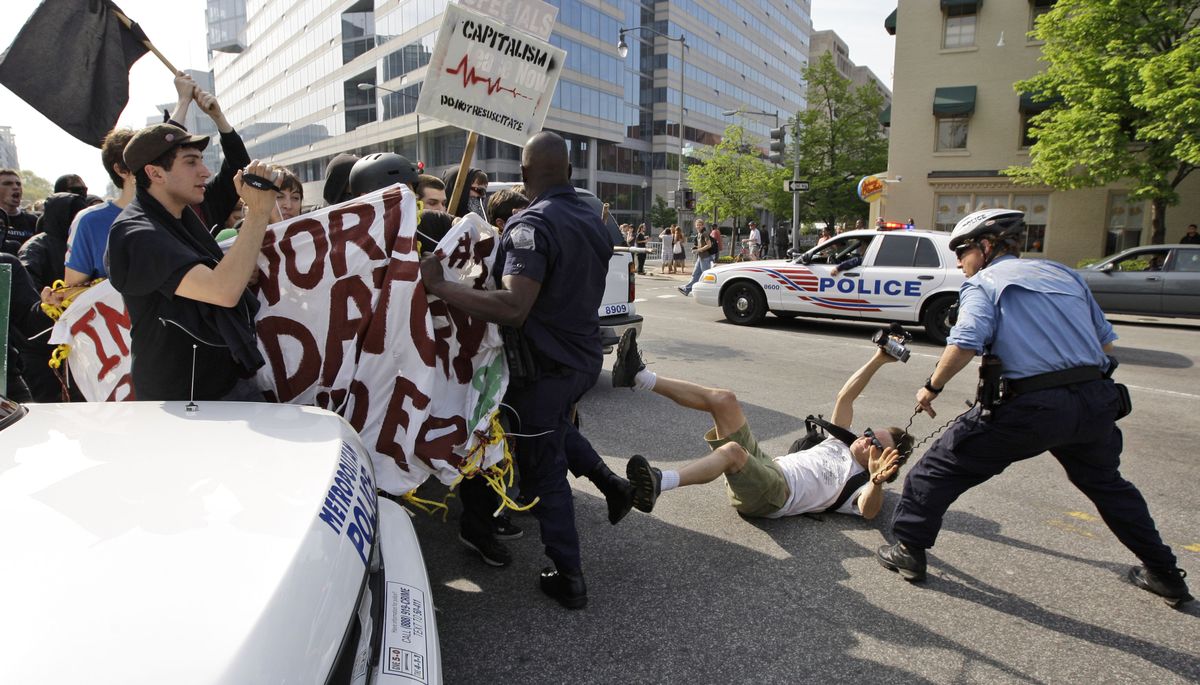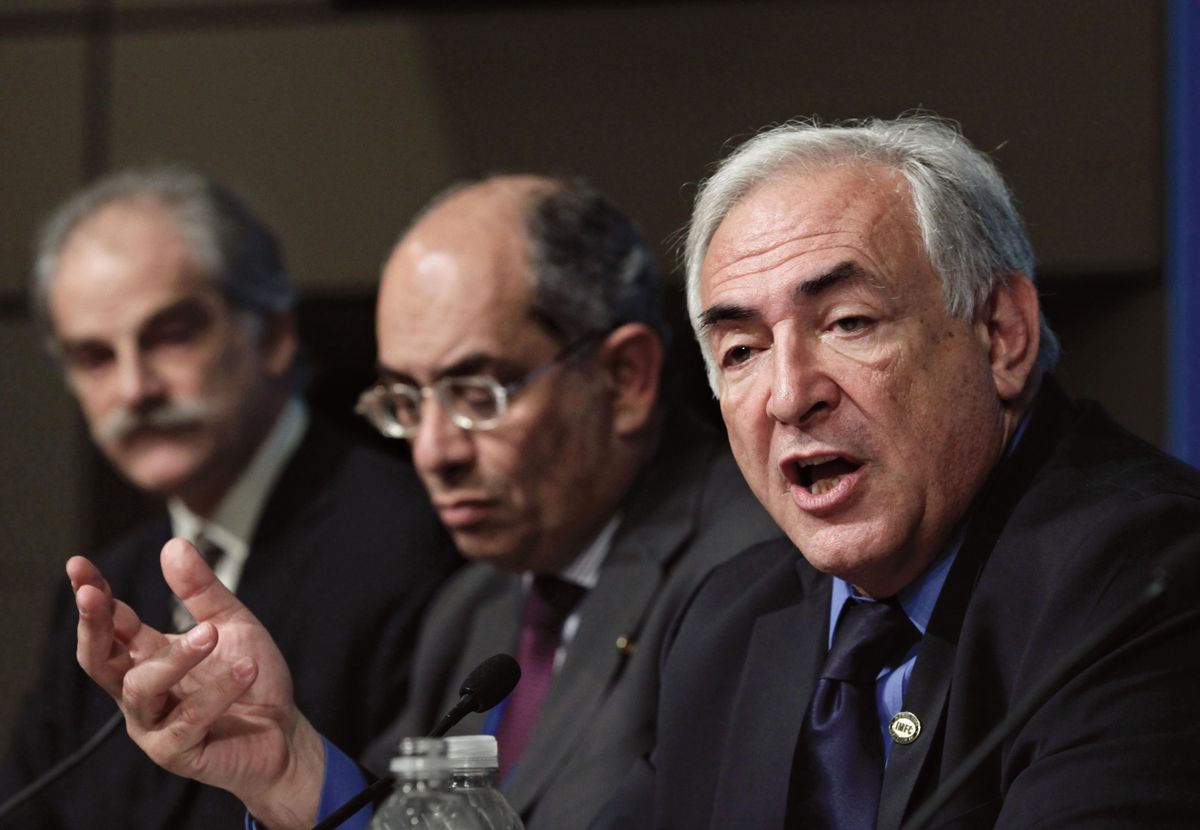Finance leaders back broader IMF mission
Agency would adopt easier lending terms for nations in need
Protesters clash with law enforcement officers during a demonstration against the International Monetary Fund in Washington, D.C., on Saturday. (Alex Brandon / The Spokesman-Review)
WASHINGTON – Global financial chiefs agreed Saturday to reshape the International Monetary Fund, moving to broaden its mission and accelerate plans to give developing giants including China, Brazil and India more say within the institution.
The IMF, which in recent years had become largely an advisory body to nations in crisis, will now be charged with aggressive monitoring of the global economy. Underscoring that role, Treasury Secretary Timothy Geithner said Saturday that Washington had consented to undergo a rigorous IMF review of the U.S. financial system for the first time since the fund was created at the end of World War II.
The IMFC – the IMF’s policy-setting body made up of financial ministers and central bankers from a host of nations, including the United States – additionally endorsed new, easier terms for IMF lending to the fast-growing number of nations buckling under the pressure of the global crisis.
The agreement was reached at the annual spring meeting in Washington of the IMF and its sister organization, the World Bank. It amounted to a broad endorsement of a shift in thinking already under way at the fund, which was outlined by world leaders at an economic summit in London this month.
As the financial crisis has spread in recent months, the IMF has adopted a more pragmatic approach toward lending, moving away from decades of harsh terms and enforcement of strict financial policies for countries that borrow.
“We’re really in new times,” said Dominique Strauss-Kahn, the IMF’s managing director, when asked about the lighter financial requirements being imposed on some nations in Eastern Europe, particularly Hungary. “I like this.”
Saturday, the IMFC backed plans to dramatically increase the fund’s financial war chest to cope with the crisis. At the London summit, world leaders including President Obama called for the IMF, which has the capacity for about $250 billion in lending, to beef up its resources to $1 trillion.
That money would be raised in two ways. First, through $500 billion in pledges from major governments. But the IMF also has the ability to effectively print its own money, and has plans to issue about $250 billion in its currency, which has a value based on the dollar, the euro, the yen and the pound.

